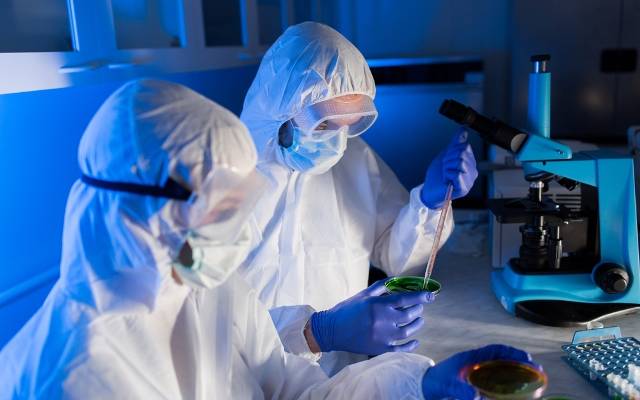An Israeli innovation that may be key in saving thousands of lives in an event of a nuclear catastrophe is currently in advanced testing stages by the US National Institutes of Health.
The US National Institutes of Health (NIH) is in advanced stages of testing an Israeli product that treats victims of radiation exposure from industrial catastrophes or a terrorist attack, Israel’s Defense News reported Thursday.
The news comes as world leaders converged in Washington for the fourth Nuclear Security Summit, which focused on the growing threat of a nuclear attack on a Western civilian target by a Muslim terrorist organization.
Developed by Pluristem Therapeutics, based in Haifa, Israel, the firm’s placenta cell therapy product — dubbed PLX-R18 — has proven to be nearly 100 percent effective in mice.
Over the coming year, NIH’s National Institute of Allergy and Infectious Diseases (NIAD), in collaboration with Pluristem and a US Food and Drug Administration-guided production process, will evaluate the optimal dose of cells to be injected in monkeys.
Once the optimal dose is determined in “nonhuman primates,” the results could lead to application and eventual license for a new drug to counter Acute Radiation Syndrome (ARS), according to NIAID’s Radiation-Nuclear Countermeasures Program, Defense News reports.
Th initial results from a three-year study funded and conducted by the Radiation-Nuclear Countermeasures Program have yielded “initial promising results.”
In the wake of the March 26 attacks in Brussels, where two of the suspects were reportedly involved in surveillance of a high-ranking Belgian nuclear scientist, world leaders are increasingly focused on preventing what Yukiya Amano, head of the International Atomic Energy Agency (IAEA), and others have coined “nuclear terrorism.”
“Terrorism is spreading and the possibility of using nuclear material cannot be excluded,” Amano told AFP on Thursday.
Yaky Yanay, president and chief operating officer of Pluristem, told Defense News that the firm’s patented PLX placenta cell therapy releases a “cocktail” of proteins to counter inflammation, ischemia, hematological disorders and radiation damage in patients exposed to acute levels of radiation. If untreated, exposure involves potentially lethal damage to the bone marrow’s ability to produce blood cells and platelets, as well as to other systems and organs.
“Today, we’re injecting 48 hours after exposure to radiation and we’re seeing very rapid recovery in small animals, while those that don’t get treated die quickly, within 15 to 30 days,” he said.
“It will be an off-the-shelf countermeasure, easily stockpiled and administered in the field,” he said. “There’s no need to match prospective patients or for hospitalization.”
More importantly, Yanay said initial research essentially shows no adverse side effects: “We can treat the entire population, if necessary. And this is extremely important in mass catastrophe or mega terror events.”
By: United with Israel Staff
